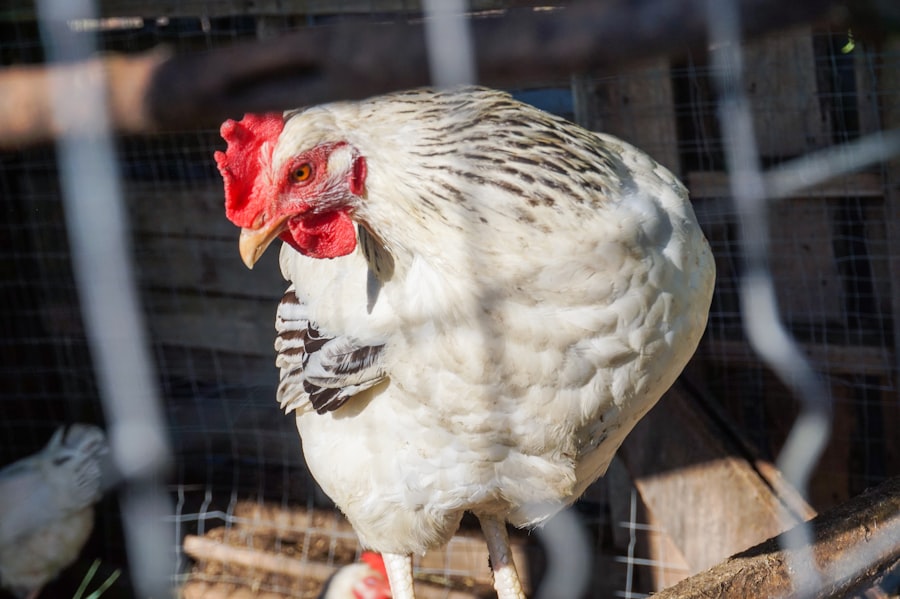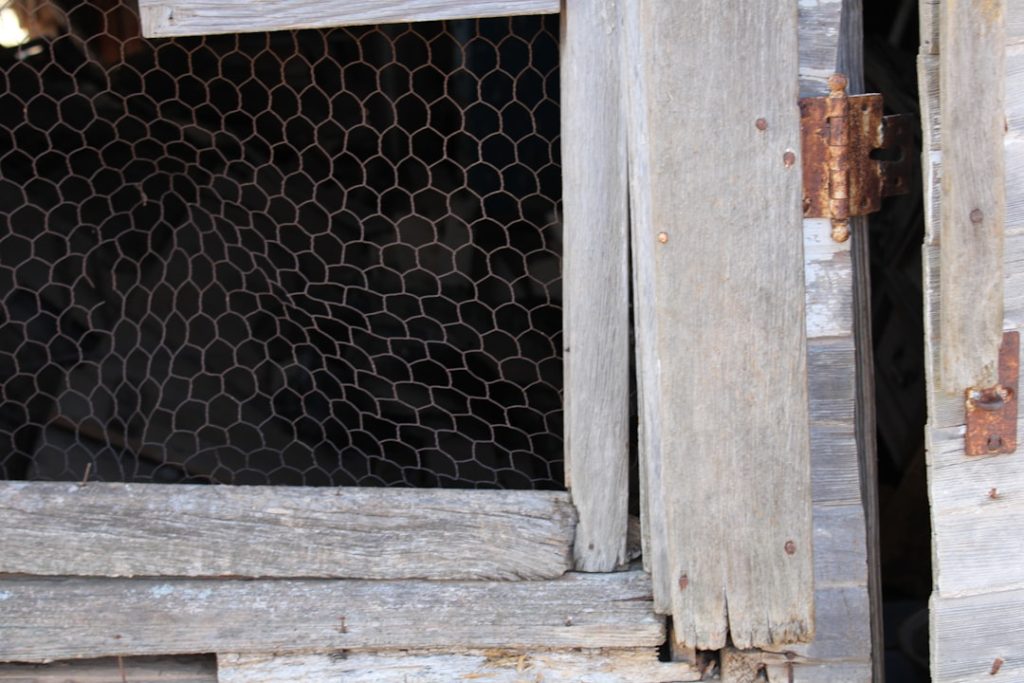Free range chickens exhibit natural foraging and roaming behaviors, driven by their curiosity and active nature. These birds explore their environment in search of food and shelter, making it essential to understand their behavior for effective management. Chickens are inherently inquisitive and will investigate new areas, particularly those that may offer sustenance or protection.
They also display territorial tendencies, establishing routines and boundaries within their habitat. Free range chickens are social creatures that often follow the lead of dominant flock members. If one chicken discovers access to a restricted area, others are likely to imitate this behavior.
Additionally, chickens are creatures of habit, frequently returning to locations where they have previously found food or shelter. This tendency can lead to persistent visits to areas such as houses or gardens once a routine is established. Understanding these behavioral traits is crucial for managing free range chickens effectively.
A comprehensive approach typically involves implementing physical barriers, utilizing natural deterrents, employing behavioral training techniques, and providing alternative areas for the chickens to roam. By considering these factors, it becomes possible to guide chicken movements and prevent them from entering unwanted areas while still allowing them to engage in their natural behaviors.
Table of Contents
- 1 Creating a physical barrier between the chickens and the house
- 2 Using natural deterrents to keep chickens away
- 3 Implementing behavioral training techniques for the chickens
- 4 Providing alternative areas for the chickens to roam
- 5 Regularly monitoring and maintaining the boundaries
- 6 Seeking professional assistance if needed
- 7 FAQs
Key Takeaways
- Free range chickens exhibit natural behaviors such as foraging, dust bathing, and exploring their environment
- Installing fencing or netting can create a physical barrier between the chickens and the house
- Natural deterrents like citrus peels, garlic, or predator urine can help keep chickens away from certain areas
- Behavioral training techniques such as positive reinforcement can be used to modify chicken behavior
- Providing alternative areas such as a designated dust bathing spot can redirect chickens’ natural behaviors
- Regularly inspecting and repairing boundaries can help prevent chickens from encroaching on unwanted areas
- Professional assistance from a poultry expert or animal behaviorist can provide additional support in managing free range chicken behavior
Creating a physical barrier between the chickens and the house
Creating a Physical Barrier
One effective way to keep free range chickens away from the house is by creating a physical barrier that prevents them from accessing the area. This can be achieved through the use of fencing, netting, or other structures that block their path. Fencing can be particularly effective in keeping chickens away from specific areas, such as gardens or outdoor living spaces.
Effective Fencing and Netting
It is important to ensure that the fencing is tall enough to prevent the chickens from flying over it, and that it is securely anchored to the ground to prevent them from digging underneath it. Netting can also be used to create a barrier between the chickens and the house. This can be particularly useful in areas where fencing may not be practical or aesthetically pleasing. Netting can be draped over plants or other vulnerable areas to prevent chickens from accessing them.
Maintenance and Alternative Barriers
It is important to regularly inspect and maintain the netting to ensure that it remains intact and effective in keeping the chickens away. In addition to fencing and netting, other physical barriers such as chicken wire or mesh can be used to block off specific areas. For example, if chickens are accessing a specific part of the garden, chicken wire can be used to create a temporary barrier until alternative measures can be put in place.
Effective Management of Chicken Movements
By creating a physical barrier between the chickens and the house, it becomes possible to effectively manage their movements and prevent them from encroaching on areas where they are not welcome.
Using natural deterrents to keep chickens away

In addition to physical barriers, natural deterrents can also be used to keep free range chickens away from the house. Chickens have a strong sense of smell and are sensitive to certain scents, which can be used to discourage them from venturing into specific areas. For example, citrus peels, garlic, or vinegar can be scattered around the perimeter of the house or garden to create an unpleasant scent for the chickens.
This can help to deter them from approaching these areas without causing them any harm. Another natural deterrent that can be used to keep chickens away is the use of predator decoys. Chickens are naturally wary of predators, and the presence of decoys such as fake owls or snakes can help to keep them at a distance.
These decoys can be strategically placed around the perimeter of the house or garden to create the illusion of a potential threat, which can discourage the chickens from approaching. In addition to scent and visual deterrents, sound can also be used to keep chickens away from specific areas. For example, wind chimes or other noise-making devices can be used to create a disturbance that makes the area less appealing to the chickens.
By using natural deterrents such as scent, visual cues, and sound, it becomes possible to discourage free range chickens from venturing into areas where they are not welcome.
Implementing behavioral training techniques for the chickens
Behavioral training techniques can also be used to manage the movements of free range chickens and prevent them from encroaching on areas where they are not welcome. Chickens are intelligent animals that can be trained to respond to certain cues and commands. By implementing behavioral training techniques, it becomes possible to teach them to avoid specific areas and follow certain rules.
One effective training technique for free range chickens is positive reinforcement. This involves rewarding the chickens for exhibiting desirable behaviors, such as staying away from the house or garden. For example, treats can be given to the chickens when they stay within designated areas or avoid approaching restricted areas.
Over time, they will learn to associate these behaviors with positive rewards and will be more likely to comply with the rules. Another training technique that can be used with free range chickens is aversive conditioning. This involves creating a negative association with certain behaviors or areas.
For example, if chickens are consistently venturing near the house, a harmless but unpleasant stimulus such as a sudden burst of water or noise can be used to deter them from approaching. Over time, they will learn to associate these behaviors with negative consequences and will be less likely to repeat them. By implementing behavioral training techniques such as positive reinforcement and aversive conditioning, it becomes possible to effectively manage the movements of free range chickens and prevent them from encroaching on areas where they are not welcome.
Providing alternative areas for the chickens to roam
One effective way to keep free range chickens away from the house is by providing alternative areas for them to roam. Chickens enjoy exploring their surroundings and foraging for food, so by creating designated areas for them to do so, it becomes possible to redirect their movements away from restricted areas. One way to provide alternative areas for free range chickens is by creating a designated foraging area.
This can be an enclosed space where chickens are encouraged to explore and search for food. By providing a designated foraging area, it becomes possible to satisfy their natural instincts while keeping them away from areas where they are not welcome. Another way to provide alternative areas for free range chickens is by creating a designated dust bathing area.
Chickens enjoy dust bathing as part of their grooming routine, so by providing a designated area for this behavior, it becomes possible to redirect their movements away from sensitive areas such as gardens or outdoor living spaces. In addition to foraging and dust bathing areas, providing alternative sources of food and water can also help to keep free range chickens away from the house. By ensuring that they have access to food and water in designated areas away from restricted spaces, it becomes possible to redirect their movements and prevent them from encroaching on areas where they are not welcome.
Regularly monitoring and maintaining the boundaries

Inspecting and Maintaining Physical Barriers
Over time, fences, netting, and other physical barriers can become damaged or compromised, which can allow chickens to access areas where they are not welcome. By regularly inspecting and maintaining the boundaries between free range chickens and the house, it becomes possible to identify and address any issues before they become a problem. This may involve repairing damaged fencing or netting, reinforcing weak spots, or adjusting barriers as needed to ensure that they remain effective in keeping the chickens at bay.
Maintaining Natural Deterrents
In addition to physical barriers, natural deterrents such as scent markers or predator decoys should also be regularly inspected and maintained. Scent markers may need to be replenished periodically to remain effective, while predator decoys may need to be repositioned or replaced over time.
Effective Boundary Management
By regularly monitoring and maintaining the boundaries between free range chickens and the house, it becomes possible to effectively manage their movements and prevent them from encroaching on areas where they are not welcome.
Seeking professional assistance if needed
If efforts to keep free range chickens away from the house prove ineffective, it may be necessary to seek professional assistance. There are professionals who specialize in animal behavior and management who can provide expert advice and assistance in managing free range chickens. Professional assistance may involve conducting a thorough assessment of the property and identifying potential vulnerabilities that are allowing chickens to access restricted areas.
They may also provide recommendations for physical barriers, natural deterrents, behavioral training techniques, and alternative roaming areas that are tailored to the specific needs of the property. In some cases, professional assistance may also involve implementing more advanced measures such as electronic fencing or motion-activated deterrents that can help keep free range chickens away from sensitive areas. By seeking professional assistance when needed, it becomes possible to effectively manage the movements of free range chickens and prevent them from encroaching on areas where they are not welcome.
If you’re looking for ways to keep free range chickens away from your house, you may want to consider investing in a Producers Pride Sentinel Chicken Coop. This coop is designed to keep your chickens contained and safe while still allowing them to roam and forage. Check out this article on Poultry Wizard for more information on how this coop can help keep your chickens from wandering too close to your home. (source)
FAQs
What are free range chickens?
Free range chickens are poultry that are allowed to roam freely and forage for food, as opposed to being confined to a coop or small enclosure.
Why do free range chickens come near the house?
Free range chickens may come near the house in search of food, water, or shelter. They are also naturally curious animals and may be attracted to human activity.
How can I keep free range chickens away from my house?
To keep free range chickens away from your house, you can try using physical barriers such as fences or netting, using repellents such as citrus peels or predator decoys, and ensuring that there are no food sources near the house.
Are there any plants that can deter free range chickens?
Yes, there are certain plants that can deter free range chickens, such as marigolds, lavender, and rosemary. These plants have strong scents that chickens may find unpleasant.
Is it safe to use chemical repellents to keep free range chickens away?
It is not recommended to use chemical repellents to keep free range chickens away, as these chemicals may be harmful to the chickens and the environment. It is best to use natural and non-toxic methods to deter them.
Meet Walter, the feathered-friend fanatic of Florida! Nestled in the sunshine state, Walter struts through life with his feathered companions, clucking his way to happiness. With a coop that’s fancier than a five-star hotel, he’s the Don Juan of the chicken world. When he’s not teaching his hens to do the cha-cha, you’ll find him in a heated debate with his prized rooster, Sir Clucks-a-Lot. Walter’s poultry passion is no yolk; he’s the sunny-side-up guy you never knew you needed in your flock of friends!







